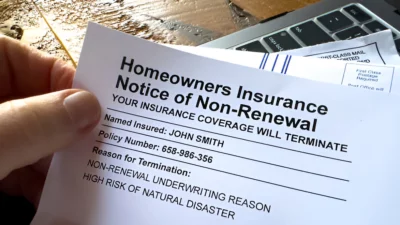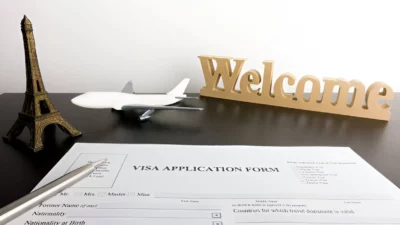Planning for the chance of becoming unable to make decisions is a task many people avoid, but it’s an essential step to safeguard your future and well-being. Two common legal instruments used to get ready for these situations are guardianship and power of attorney. Both aim to assist in managing a person’s affairs if they can’t do so themselves, but they operate in very different manners. In this blog, we’ll delve into guardianship vs. power of attorney, concentrating on how each functions in New Jersey and when one might be more suitable than the other.
There are instances in life when illness, injury, or aging could make it difficult or impossible for a person to make decisions. Having a plan to manage finances, healthcare decisions, and personal care is crucial. Though both enable someone to make decisions for another person, they are utilized in different ways and involve different legal procedures.
What is Guardianship in New Jersey?
Guardianship is a legal process in which a court appoints a person or corporation to make decisions on behalf of someone who is no longer capable of doing so for themselves. This typically applies to adults with severe mental or physical disabilities, dementia, or other conditions that impair judgment.
Types of Guardianship
General Guardianship: The guardian has all powers to make decisions for the person.
Limited Guardianship: The guardian is given authority over specific areas, such as medical decisions or finances.
How Guardianship is Established in New Jersey
To establish guardianship, a court must first determine that the person is legally incapacitated. This procedure involves:
- Filing a petition in the Superior Court
- Providing medical certifications from doctors
- A hearing where the person has the right to an attorney
- A judge deciding who should act as guardian
Roles and Responsibilities of a Guardian
Guardians are tasked with making decisions in the best interests of the individual. They must file regular reports with the court and act responsibly.
Effects of Guardianship on the Individual’s Autonomy
Once a guardian is appointed, one loses the ability to make decisions. This can represent a significant loss of independence, which is why courts carefully consider it before granting it.
What is the Power of Attorney in New Jersey?
A power of attorney is a written document. It has a clear intention that one person (the “principal”) envoys legal authority to another person (the “agent” or “attorney-in-fact”) to act for them.
Types of POA
- General POA
- Special POA
- Durable POA
- Healthcare POA
How POA is Established in New Jersey
To establish a POA:
- The principal must be mentally competent when signing
- The document must be in writing and signed by the principal
- Often, it is notarized or witnessed to confirm its legitimacy
Roles and Responsibilities of an Attorney-in-Fact
The agent must adhere to the instructions specified in the POA document and act in the principal’s best interests. They can conduct financial transactions, manage property, or make healthcare decisions, depending on the type of POA.
Effects of POA on the Individual’s Autonomy
With a POA, the principal can still make their own decisions as long as they are capable. They can also revoke the POA at any time, provided they have mental capacity.
Key Differences Between Guardianship and Power of Attorney
| Factor | Guardianship | Power of Attorney |
| Court Involvement | Required; established by a judge | Not required; established by a private legal document |
| Autonomy Retained | Individual loses decision-making rights | Individual keeps autonomy unless incapacitated |
| Scope of Authority | Set by the court | Defined in the POA document |
| Timing | Takes effect after court ruling | Can take effect immediately or upon incapacity |
| Revocability | Not easily revoked; requires court action | Can be revoked by the principal anytime |
When to Choose Guardianship vs Power of Attorney
When Guardianship May Be Necessary
Guardianship is typically used when:
- A person is already incapacitated and didn’t prepare a POA
- The person is unable to make any legal, financial, or medical decisions
- There are concerns about safety, neglect, or exploitation
When Power of Attorney is Preferred
POA is often chosen:
- As part of advance planning, while the person is still mentally capable
- When specific authority is needed, such as handling finances during travel or illness
- To avoid court involvement and preserve independence
New Jersey Specific Laws and Regulations
New Jersey law governs both guardianship and POA under specific statutes:
- Guardianship: Covered under New Jersey Statutes Annotated (NJSA).
- Power of Attorney: Governed by NJSA 46:2B-8 et seq., which includes rules on how POAs are created, their limitations, and agent responsibilities.
One important note in New Jersey: a POA must include specific language to be considered durable, which ensures it remains valid after the principal becomes incapacitated.
Conclusion
When comparing guardianship vs power of attorney, it’s important to consider the timing, the individual’s current mental capacity, and the desired level of control. Guardianship, on the other hand, is a more protective measure used when someone can no longer make decisions and does not plan in advance. Understanding these tools and how they apply under New Jersey law can help families prepare for life’s unexpected turns with clarity and peace of mind. Contact the professionals and get help with necessary legalities at The Simone Law Firm to learn more!

Lexy Summer is a talented writer with a deep passion for the art of language and storytelling. With a background in editing and content creation, Lexy has honed her skills in crafting clear, engaging, and grammatically flawless writing.



